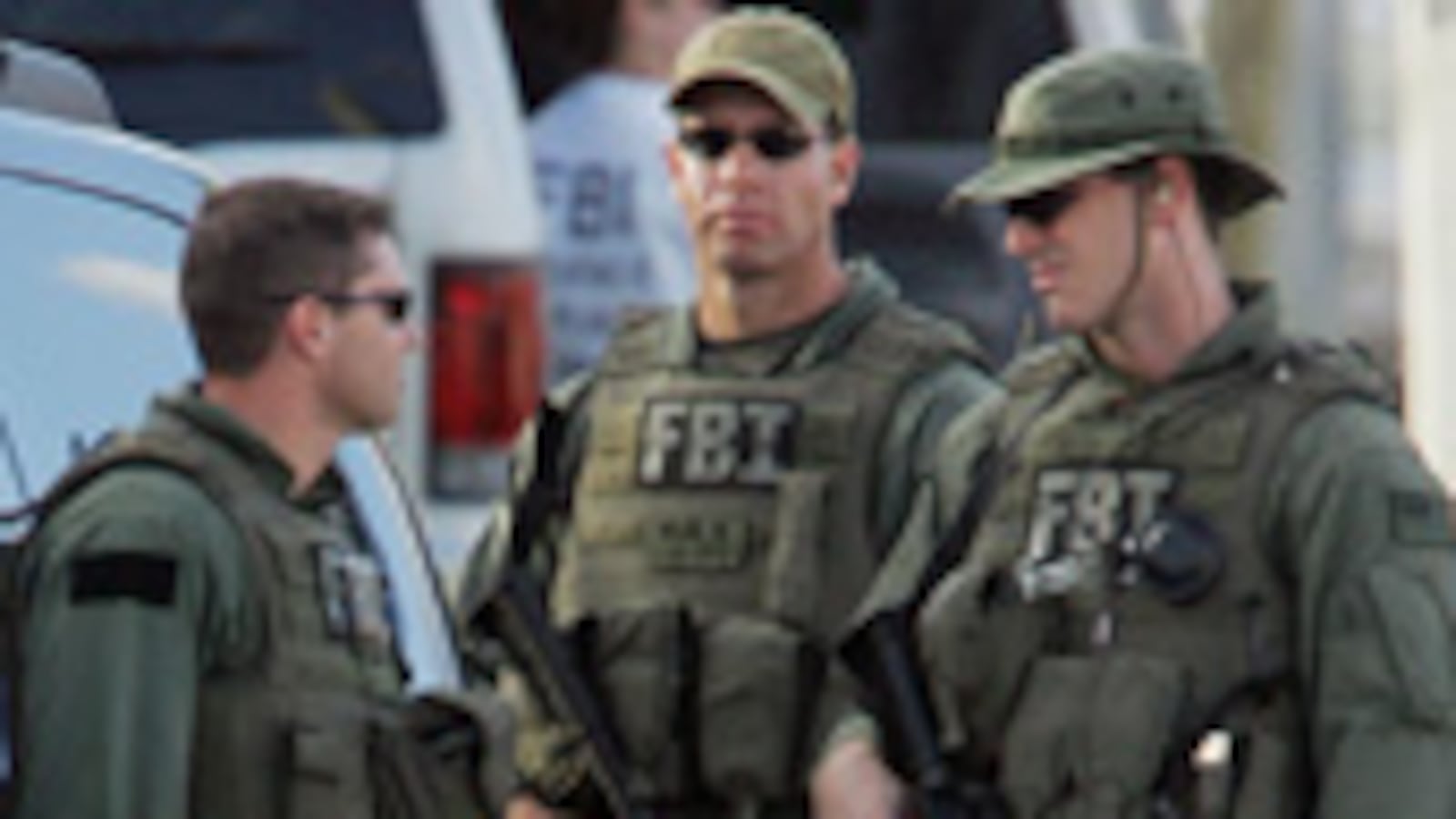
If Stewart David Nozette, arrested by the FBI this month, is convicted of imagining he was spying for Israel, though the Israelis never recruited him, then it will be because he built his own prison cell for the next 10 to 20 years. If you have been an eminent space scientist with a serious security clearance—as Nozette was—and you run around telling people you want to spy, you shouldn’t be surprised if the FBI knocks on the door.
Until 2006, Nozette held a common but coveted Top Secret clearance with the U.S. government. He helped design equipment that found water on the Moon in 1994, worked at the famous Lawrence Livermore nuclear laboratory in California, and had given Pentagon briefings. From 1998 to 2008 he was a consultant for Israel Aircraft Industries, earning $225,000 over 10 years. IAI, an aerospace giant that has huge lucrative joint defense contracts with major U.S. companies, is the largest company in Israel.
Nozette’s arrest should be seen as a warning shot to Israel sympathizers in the U.S. national security and technological communities that blind eyes won't be turned any more to the leakage of sensitive information and technology to the Jewish state.
Yet, Nozette, 52, suffered from a serious case of “Walter Mitty syndrome,” living out his fantasy of being a spy without ever actually being one. According to FBI reports already released, when he entered into discussions with federal agents presenting themselves as operatives of the Mossad, the primary Israeli security service, he not only said he had expected them to come calling, he even insisted on flying business class when they took him to Israel.
Many spies are gray, anonymous men who were always misfits and developed extreme bitterness because they never achieved the eminence they craved. That kind of motivation certainly fueled Jonathan Pollard, who gave massive quantities of intelligence to Israel in the 1980s, and Aldrich Ames, who betrayed U.S. espionage assets to the Soviet Union dooming them to torture and execution.
Nozette exhibited the out of control narcissism and egocentricity typical of many spies. But his case is unusual because his career had in fact been distinguished and satisfying for so long. Here, after all, was a man who held Top Secret security clearances for 17 years, served on President George H.W. Bush’s National Space Council when he was still only in his early 30s, and participated in the research effort that found water on the Moon.
And unlike the infamous John A. Walker spy ring that sold crucial information from 1968 to 1985 on U.S. nuclear submarine detection and communications technology to the Soviets, information that in the event of a world war could have contributed to the deaths of scores of millions of Americans, Nozette does not even appear to have been primarily motivated by greed. Taking a down payment of $11,000 for betraying his country and risking the life sentence he may receive doesn’t suggest someone who thought in terms of a big payday.
FBI counter-intelligence officers didn’t have to go far looking for Nozette. He was brought to their attention by NASA’s inspector general’s office that suspected he was making false claims for expenses. But his bungling was still a welcome bonus for the Feds, allowing them to kill lots of birds with one stone.
First, the prosecution of Nozette will overshadow the fiasco of the eventually dropped federal case against Steve Rosen and Keith Weissman, two former senior officials of the powerful pro-Israel lobby AIPAC, for allegedly leaking classified Defense Department documents to Israel. The case against Rosen and Weissman was so amorphous and ill defined that it was eventually thrown out.
Second, the prosecution of Nozette will send a warning shot at potential pro-Israel sympathizers in the U.S. national security and high-tech communities to deter the reckless and over-confident sharing of sensitive information. Over the past 30 years, the U.S. and Israeli military industrial sectors, especially in the areas of IT, anti-ballistic missile systems and unmanned aerial vehicle technology have become increasingly intertwined, to the overwhelming benefit, it should be said, of both countries.
Tiny Israel, with a total population of around 6 million, doesn’t have the resources to launch ambitious major high-tech weapons programs on its own. When it does, the results are often costly snafus. But the Israelis have become masters at what the Japanese were long famous for—incrementally improving high-tech systems, especially on complex weapons, to vastly boost their effectiveness and performance.
The downside, however, from the U.S. point of view, was that the normally hard and fast lines against sharing often highly sensitive technology with other countries became increasingly blurred over the years. This was especially the case during the six-year tenure of Donald Rumsfeld as U.S. Secretary of Defense. Especially during President George W. Bush’s first term of office, Israeli military officers often appeared to enjoy a free run in the Pentagon, and it was an open secret in U.S. military circles that there was a great deal of consternation and even anger over this state of affairs.
Nozette’s long association as a consultant with Israel Aerospace Industries was a classic example of the symbiotic relationship. IAI builds the Arrow-2 anti-ballistic missile interceptor, Israel’s primary line of defense against possible nuclear missile attack from Iran. And IAI builds the Arrow in close collaboration with Boeing. The United States benefits from that technology too. But even the closest of allies are still different countries with different interests that demand the prime and loyal allegiance of their citizens.
Contrary to detractors since the Rosen-Weismann disaster, the FBI does not spend much of its counter-intelligence resources unfairly targeting patriotic American Jews who support Israel. The Feds’ priorities remain the struggle against extreme Islamist attempts to create operating cells and plan major attacks within the domestic U.S. The FBI is also stretched thin, with limited resources to monitor, contain, and defeat the defense and commercial espionage efforts, especially in the areas of advanced technology, carried out by Russia, China and India within the United States.
Nozette’s arrest should be seen as a warning shot to Israel sympathizers in the U.S. national security and technological communities that blind eyes won't be turned any more to the leakage of sensitive information and technology to the Jewish state.
Yet it is unlikely that White House policymakers can use the threat of pressure on Israel's lobby in Washington to influence Israeli Prime Minister Benjamin Netanyahu, currently riding higher than ever in popularity at home since he successfully faced down President Obama on settlements on the West Bank and the peace process. No secrets were required. Above all, Nozette’s arrest highlights the perils of hubris, even for brilliant high-flyers, a breed that Washington produces in abundance. Trying to live out James Bond fantasies in advanced middle-age is not a recommended option.
Martin Sieff is the Chief Global Analyst at The Globalist. He was State Department correspondent for the Washington Times and has received three Pulitzer Prize nominations for international reporting.






